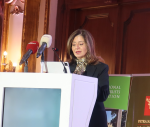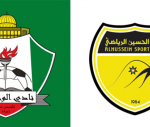You are here
Times ‘are changing’ in the region
Oct 04,2017 - Last updated at Oct 04,2017
King Salman Bin Abdulaziz Al Saud’s arrival in Moscow today on a three-day official visit, the first ever by a Saudi monarch, reveals how times are a-changin’ in this region.
The king’s discussions with Russian President Vladimir Putin will take place as Moscow marks the second anniversary of its decisive intervention in the Syrian war, enabling Damascus to roll back territorial gains by Saudi-backed taqfiri insurgents.
The conflicts in Syria and Yemen, as well as forging energy policies and joint ventures will top the leaders’ agenda.
The king undertakes this trip to demonstrate Saudi recognition of Moscow’s return to this region as a major actor, as well as Saudi realisation that the US is no longer the dominant external power here and a round the world.
The oldest US ally in the Middle East, Riyadh is hedging its bets by picking up the Russian card. The Saudis are wise to adopt this tactic.
In spite of the high-profile celebratory visit of Donald Trump to the kingdom in May, the Saudis may be concerned about his erratic behaviour and suspicious of his intentions in this region.
Policy makers in the US and abroad do not know from one day to the next what he will do. As US commentators say, everything he does is “about himself”.
Although the Soviet Union — not the US — was the first country to establish diplomatic Relations with the Kingdom of Hijaz and Nejd (Saudi Arabia’s original name) by opening a mission in 1926, the Saudis broke relations with Moscow in 1938 and did not reestablish ties until the collapse of the Soviet Union and the emergence of the Russian Federation in 1990. Since then, relations have been cool and correct. The king’s visit shows they are warming.
The Saudis have had to make a major shift in their thinking to reach the conclusion that seeking rapprochement with Russia is a good idea.
During the Cold War, Riyadh sided completely with the West and the Saudis financed US-armed and trained mujahideen in their fight against the Soviet army in Afghanistan.
Now that the communist bogey has vanished, the two can combine resources to combat takfiris who threaten the region and the world.
During the Syrian conflict, Saudi Arabia and Russia have been on opposite sides, but Riyadh has decided to back Russian-Turkish-Iranian efforts to impose ceasefire or “de-escalation zones” in north, central and southern Syria.
Riyadh and Moscow have, according to the Russians, agreed to “fight terrorism in all its manifestations”.
Both have an existential interest in taking on the takfiris who threaten to undermine domestic security and instigate violence abroad.
The king’s programme has been carefully prepared following the visit in early September to the kingdom by Russian Foreign Minister Sergey Lavrov, who has been deeply involved in efforts to end the Syrian conflict.
The Saudi view of Russia changed after Moscow deployed warplanes, pilots, ground staff, military advisers and sappers in Syria two years ago.
Russia’s military intervention in the Syrian conflict enabled the Syrian government to contain and reverse gains made by Saudi-sponsored insurgents.
Russian air cover also emboldened the Syrian army to tackle Daesh in the eastern province of Deir Ezzor and Al Qaeda’s Jabhat Fateh Al Sham (former Jabhat Al Nusra) in the northwestern province of Idlib.
On the political front, Russia’s intervention has also made it clear to opponents of Syrian President Bashar Assad that he will stay in office until the war ends and the country is stabilised.
Opposition sponsors Riyadh and Ankara have had to recognise that, in the words of UN mediator Staffan de Mistura, their armed and political proxies have lost the war.
Saudi Arabia and Turkey must now cooperate with Russia to bring peace to Syria and put an end to the war’s dangerous destabilising repercussions in the region.
Syria is not the only issue Saudi Arabia and Russia plan to discuss. As the world’s two largest oil exporters, they have been cooperating in efforts to stabilise the price of oil at $50-60 a barrel.
This happened last year when Riyadh and Moscow secured an agreement between the Organisation of Petroleum Exporting Countries (OPEC) and non-OPEC suppliers to reduce output by 1.8 million barrels a day and drive up the price of crude.
Both countries are dependent on oil revenues to sustain their economies and the living standards of their citizens.
Ahead of the king’s arrival, Russian Energy Minister Alexander Novak told Al Arabiya television: “Our focus is not just on strengthening our cooperation within the framework of the OPEC and non-OPEC [accord] but also strengthening cooperation in oil, gas, electricity renewable energy and other projects for oil and gas.”
Since Saudi Arabia and Russia produce nearly 25 per cent of the world’s oil, their cooperation is likely to continue to shape the behaviour of the industry.
The king’s visit has been timed to coincide with the announcement of the establishment of a $1 billion fund to invest in energy projects and with discussions on expanding cooperation in the energy sector.
Talks will go ahead on a deal for Saudi investment in major Russian oil and gas firms. Saudi Aramco, the kingdom’s oil multinational, seeks to reach an agreement on the formation of a joint venture with Russia’s largest petrochemical firm for manufacturing synthetic rubber in the kingdom.
Russian companies also seek to provide drilling and other services in Saudi Arabia.
Saudi Arabia and Russia have the post-Syrian war period to consider. Oil is, after all, thicker than blood.












